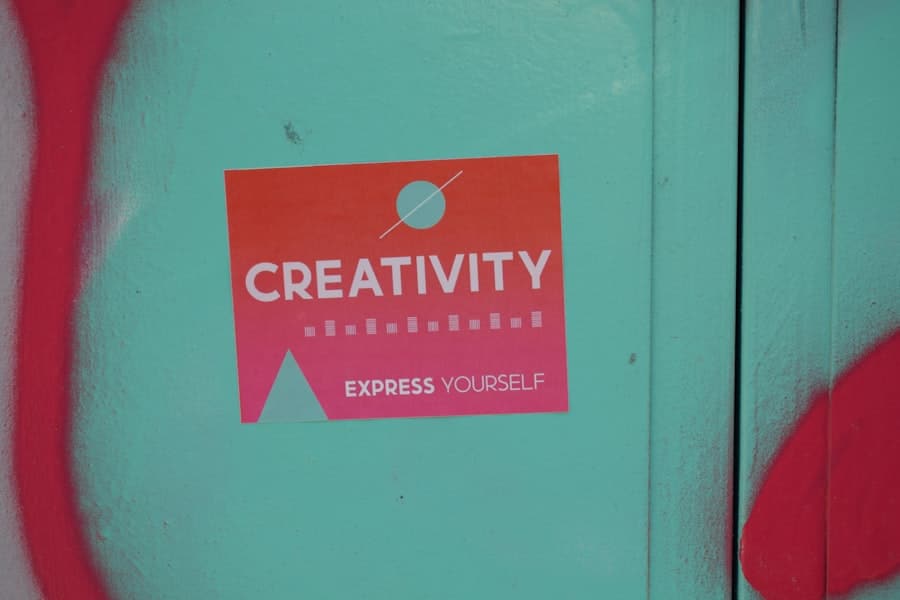The advent of artificial intelligence (AI) has revolutionized numerous sectors, and career discovery is no exception.
The traditional methods of career exploration, which often relied on generic advice and limited access to information, are being transformed by AI’s ability to analyze vast amounts of data and provide tailored recommendations.
This shift not only enhances the job-seeking experience but also empowers individuals to make informed decisions about their professional paths. AI in career discovery encompasses a range of technologies, including machine learning algorithms, natural language processing, and data analytics. These tools can assess an individual’s skills, interests, and experiences, matching them with potential career opportunities that align with their aspirations.
As the job market continues to evolve, driven by technological advancements and changing economic landscapes, the integration of AI into career discovery processes is becoming increasingly essential. This article delves into the multifaceted role of AI in career exploration, highlighting its benefits, applications, and the ethical considerations that accompany its use.
Key Takeaways
- AI in career discovery offers personalized recommendations based on individual skills and interests, revolutionizing the traditional job search process.
- The benefits of AI in career discovery include increased efficiency, accuracy, and access to a wider range of opportunities for job seekers.
- AI streamlines the job search process by automating tasks such as resume screening, candidate matching, and interview scheduling, saving time and effort for both job seekers and employers.
- AI plays a crucial role in providing personalized career recommendations by analyzing individual preferences, skills, and market trends to suggest suitable career paths.
- AI’s impact on skill matching and development enables job seekers to identify and acquire the necessary skills for their desired career, leading to better job satisfaction and performance.
The Benefits of AI in Career Discovery
One of the most significant advantages of AI in career discovery is its ability to provide personalized insights based on individual profiles. Traditional career counseling often relies on standardized assessments that may not fully capture a person’s unique strengths and preferences. In contrast, AI-driven platforms can analyze a multitude of factors, including educational background, work experience, and even personality traits, to generate customized career recommendations.
Moreover, AI can significantly reduce the time and effort required for job seekers to identify suitable opportunities. By automating the initial stages of job searching—such as resume screening and job matching—AI tools can streamline the process, allowing candidates to focus on preparing for interviews and networking.
For instance, platforms like LinkedIn utilize AI algorithms to suggest job openings based on users’ profiles and past interactions. This not only saves time but also ensures that candidates are presented with opportunities they may not have discovered through traditional job search methods.
How AI Can Streamline the Job Search Process

The job search process can often feel overwhelming, with countless applications to submit and numerous companies to research. AI technologies are designed to alleviate some of this burden by automating various aspects of the search. For example, AI-powered chatbots can assist candidates in navigating job boards, answering questions about application procedures, and providing real-time updates on job postings.
This immediate access to information can significantly enhance the user experience, making it easier for candidates to stay informed and engaged throughout their job search. Additionally, AI can optimize resume writing and application submissions. Tools like Grammarly and Jobscan leverage AI to analyze resumes against job descriptions, offering suggestions for improvements that can increase a candidate’s chances of being noticed by hiring managers.
By ensuring that resumes are tailored to specific roles and highlight relevant skills, candidates can present themselves more effectively in a competitive job market. Furthermore, AI can track application statuses across multiple platforms, providing candidates with a centralized view of their job search progress.
The Role of AI in Personalized Career Recommendations
Personalized career recommendations powered by AI are transforming how individuals approach their professional journeys. By utilizing data analytics and machine learning algorithms, these systems can identify patterns in user behavior and preferences that inform tailored suggestions. For instance, platforms like Coursera and Udacity analyze users’ learning habits and completed courses to recommend additional educational resources or career paths that align with their interests.
This level of customization not only enhances user satisfaction but also encourages continuous learning and skill development. Moreover, AI-driven career recommendation systems can adapt over time as users gain new experiences or shift their interests. For example, if a user initially expresses interest in marketing but later explores data analytics courses, an AI system can adjust its recommendations accordingly.
This dynamic approach ensures that individuals receive relevant guidance throughout their careers, helping them navigate transitions and explore new opportunities as they arise. The ability to provide real-time feedback and suggestions based on evolving user profiles is a game-changer in the realm of career discovery.
AI’s Impact on Skill Matching and Development
Skill matching is a critical component of successful career discovery, as employers increasingly seek candidates whose skills align with their organizational needs. AI plays a pivotal role in this process by analyzing job descriptions and candidate profiles to identify skill gaps and opportunities for development. For instance, platforms like LinkedIn Learning utilize AI algorithms to recommend courses that can help users acquire the skills necessary for specific roles or industries.
This proactive approach not only benefits job seekers but also helps employers find qualified candidates who meet their requirements. Furthermore, AI can facilitate upskilling and reskilling initiatives by identifying emerging trends in the job market. As industries evolve due to technological advancements or shifts in consumer behavior, certain skills may become obsolete while others gain prominence.
AI tools can analyze labor market data to forecast which skills will be in demand in the future, enabling individuals to make informed decisions about their professional development. By equipping themselves with relevant skills ahead of time, candidates can enhance their employability and remain competitive in an ever-changing job landscape.
Ethical Considerations in AI-Driven Career Discovery

Bias in AI Algorithms
One major concern is the potential for bias in AI algorithms, which can inadvertently perpetuate existing inequalities in hiring practices. If an AI system is trained on historical data that reflects biased hiring decisions, it may produce recommendations that reinforce these biases.
Privacy Concerns
Job seekers often share sensitive information about their backgrounds, experiences, and aspirations when using career discovery platforms. Ensuring that this data is handled responsibly and securely is crucial for maintaining user trust. Organizations must implement robust data protection measures and be transparent about how user information is collected, stored, and utilized.
Striking a Balance
Striking a balance between leveraging data for personalized recommendations and safeguarding user privacy is essential for ethical AI deployment in career discovery. By addressing these ethical considerations, we can ensure that AI-driven career discovery platforms are fair, transparent, and beneficial for all users.
The Future of AI in Career Discovery
As technology continues to advance at a rapid pace, the future of AI in career discovery holds immense potential for further innovation. One promising area is the integration of virtual reality (VR) and augmented reality (AR) into career exploration tools. These technologies could allow users to immerse themselves in simulated work environments or participate in virtual job shadowing experiences, providing a deeper understanding of various roles before committing to a particular path.
Such immersive experiences could enhance decision-making by allowing individuals to visualize themselves in different careers. Moreover, advancements in natural language processing (NLP) could lead to more sophisticated interactions between users and AI systems. Future career discovery platforms may employ conversational agents capable of engaging in meaningful dialogues with users about their aspirations and concerns.
This could create a more intuitive experience where individuals feel supported throughout their journey rather than simply receiving automated responses. As these technologies evolve, they will likely enhance the overall effectiveness of AI-driven career discovery tools.
Leveraging AI for Successful Career Exploration
The integration of artificial intelligence into career discovery processes represents a significant leap forward in how individuals explore professional opportunities. By harnessing the power of data analytics and machine learning, AI tools provide personalized insights that empower users to make informed decisions about their careers. From streamlining the job search process to facilitating skill matching and development, the applications of AI are vast and varied.
However, as we embrace these advancements, it is crucial to remain vigilant about ethical considerations surrounding bias and privacy. By addressing these challenges head-on, we can ensure that AI serves as a force for good in career discovery—one that promotes equity and inclusivity while helping individuals navigate their professional journeys with confidence. As we look ahead to the future of work, leveraging AI effectively will be key to unlocking new possibilities for successful career exploration.
In a related article discussing the top trends on YouTube for 2023, content creators are constantly seeking ways to engage with their audience and stay ahead of the curve. With the role of AI in automating the career discovery process, individuals can leverage technology to identify new opportunities and tailor their content to meet the demands of the ever-changing digital landscape. To learn more about the latest trends in content creation, check out the article here.
FAQs
What is AI?
AI, or artificial intelligence, refers to the simulation of human intelligence processes by machines, especially computer systems. These processes include learning, reasoning, and self-correction.
How does AI automate the career discovery process?
AI automates the career discovery process by using algorithms to analyze a person’s skills, interests, and personality traits, and then matching them with potential career paths. This can be done through various methods such as online assessments, chatbots, and recommendation systems.
What are the benefits of using AI for career discovery?
Using AI for career discovery can provide personalized and accurate career recommendations based on an individual’s unique characteristics. It can also save time and effort by streamlining the career exploration process and providing valuable insights into potential career paths.
Are there any limitations to using AI for career discovery?
While AI can provide valuable insights, it is important to note that it is not a perfect solution and may have limitations. For example, AI algorithms may not always account for personal preferences, cultural factors, or individual circumstances when making career recommendations.
How is AI being used in career discovery today?
AI is being used in career discovery through various platforms and tools, such as career assessment websites, job search engines, and career counseling chatbots. These tools use AI algorithms to analyze data and provide personalized career recommendations to users.

